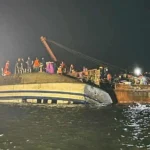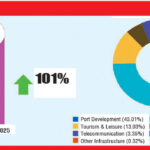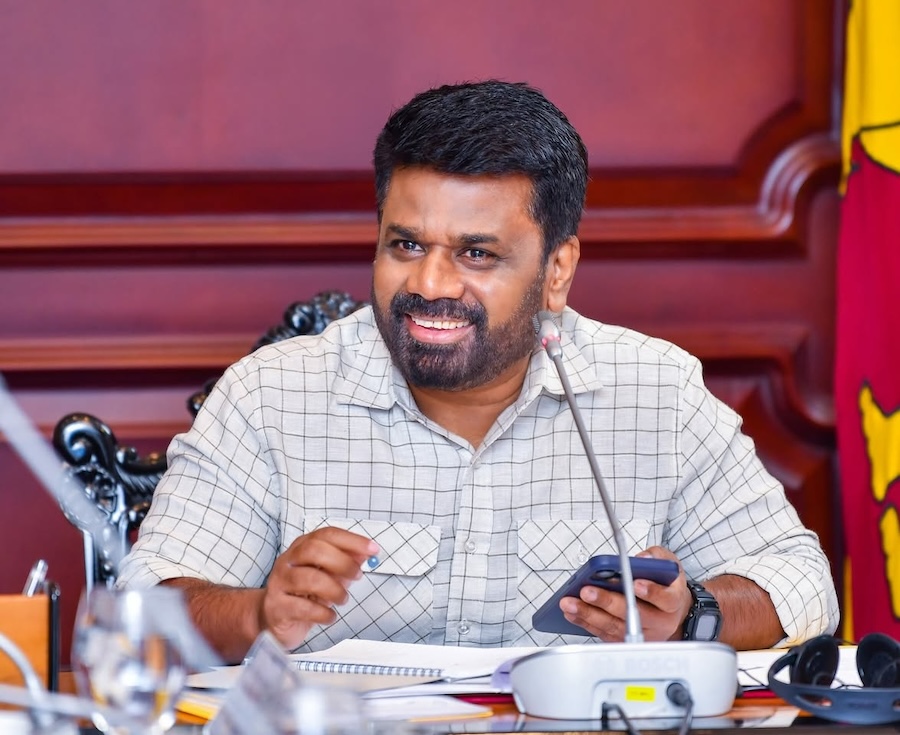
Wide Angle focuses onto President AKD’s: Political Hope meeting Harsh Realities
- CNL Reporter
- July 20, 2025
- Weekly Political Review
- AKD
- 0 Comments
Weekly Political Review
NPP-led government battles rising public discontent, institutional shakeups, and a fragile economy
Almost a year into President Anura Kumara Dissanayake’s historic election win, the political momentum that brought his Janatha Vimukthi Peramuna (JVP)-led National People’s Power (NPP) government to power appears to be meeting the harsh headwinds of reality.
The promise of a “system change” that captured public imagination during the economic collapse of 2022 is now being tested by rising living costs, unresolved institutional challenges, international trade tensions, and growing public skepticism.
From the outset, AKD’s administration faced an unenviable dual burden: reviving an economy in crisis and restoring trust in a deeply fractured political system. But as months pass, the optimism that accompanied his victory is being eroded by familiar grievances—rising utility bills, cost-of-living hikes, and waning transparency.
Public Pressure and Eroding Patience

In recent weeks, torch-lit protests have returned to the streets of Colombo and Medirigiriya—symbolic echoes of the 2022 aragalaya movement that toppled a sitting president. The trigger: another electricity tariff hike.
Though smaller in scale than those of the past, these protests reflect a growing anxiety among citizens who see little relief in daily life. Many suspect that further increases in utility costs are on the horizon, particularly as the government works to meet conditions for the next IMF tranche.
While AKD remains personally popular among many for his no-nonsense style and anti-corruption stance, the political honeymoon may be ending.
The public is beginning to feel the burden of governance shifting squarely onto their shoulders, and the slogans of systemic reform are slowly being drowned out by demands for immediate relief.
The Constitution, Courts, and Commissions
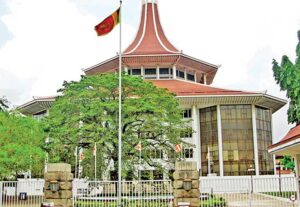
In a bid to restructure governance, the NPP administration is reportedly considering amendments to the Constitution and structural changes to independent commissions.
These may include changes to the Constitutional Council—moves that, while legally within the administration’s rights, risk being perceived as politically motivated, especially in light of the impending retirement of Chief Justice Murdu Fernando. With a shortlist of contenders already causing internal friction, AKD faces a politically sensitive decision that could have long-lasting consequences for the judiciary’s independence.
Meanwhile, the recently launched Anura Meter, a tracker by independent think tank Manthri.lk, is monitoring the implementation of 22 key promises from AKD’s election manifesto. While this is a step toward accountability, it also serves as a real-time reminder of how much—or little—has been delivered so far.
International Relations: Between Tariffs and Diplomacy

On the foreign policy front, the government finds itself in a delicate position. The United States’ tariff regime, originally introduced by former President Donald Trump and now entangled with ongoing geopolitical tensions with China, poses a threat to Sri Lankan exports. With Sri Lanka’s fragile economy relying heavily on trade, any hit from Washington could stall its tentative recovery.
Former President Ranil Wickremesinghe has urged the government to remind the US of its obligations under Sri Lanka’s debt treatment agreements as part of the Official Creditor Committee (OCC), especially since the US has signed on to the IMF’s Extended Fund Facility (EFF) for Sri Lanka.
Against this backdrop, Foreign Minister Vijitha Herath recently met his Chinese counterpart Wang Yi on the sidelines of the ASEAN Foreign Ministers’ meeting. With the US-China trade war casting long shadows, Sri Lanka is trying to maintain a neutral stance while protecting its own economic interests.
Political Undercurrents and Rising Opposition Tensions
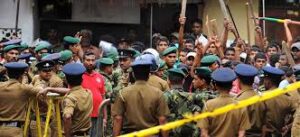
Internally, AKD is also navigating a deeply fragmented political landscape. While his administration seeks to solidify its authority, the opposition is in disarray—but not without intrigue.
Sajith Premadasa, the Leader of the Opposition, is now facing mounting scrutiny over housing projects initiated during his time as Housing Minister under the Yahapalana government.
Investigations have revealed discrepancies in the ‘Sevana’ housing programme, including questionable promotional expenditures and undelivered benefits to the tune of nearly Rs. 6 billion.
This comes in tandem with a continuing probe into Central Cultural Fund spending—also under his watch.
Discontent is brewing within the SJB as well, with members calling for leadership changes following five consecutive electoral defeats. Some even question whether Premadasa should continue as leader.
Adding to the drama, Dayasiri Jayasekara—an SJB MP and former SLFP stalwart—is rumoured to be positioning himself for a top role either within the SJB or potentially as a new SLFP leader.
Jayasekara’s recent visits to Parliament—even on non-sitting days—have raised eyebrows. He has reportedly been spending time studying the responsibilities of the Leader of the House, possibly positioning himself for a key parliamentary leadership role.
Meanwhile, Minister Bimal Rathnayake and his deputy Janitha Kodithuwakku are facing accusations related to the unauthorized release of over 300 containers from the Colombo Port, allegedly without proper inspection.
Former Minister Udaya Gammanpila has petitioned the Bribery Commission (CIABOC) for action, but progress remains stalled, drawing further criticism about the slow pace of accountability.
Wickremesinghe, LNG, and Backroom Deals
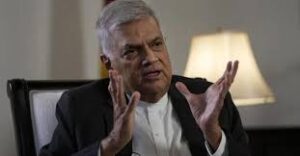
Adding another layer to the complex web of political maneuvering is a recent secretive dinner hosted by outgoing US Ambassador Julie Chung. Attendees included former President Ranil Wickremesinghe, UNP National Organizer Sagala Ratnayake, and SJB MPs Harsha de Silva and Kabir Hashim.
Rumors suggest the agenda included discussions on the Electricity Board Act and the stalled LNG project with Fortress Energy—an agreement signed under the Rajapaksa government that never came into effect due to public backlash.
While these discussions might seem innocuous, they hint at potential policy alignments that could cut across party lines—raising questions about influence, lobbying, and the future direction of Sri Lanka’s energy policy.
Conclusion: Between Hope and Hard Truths
President Anura Kumara Dissanayake’s administration remains at a critical juncture. The initial hope of a clean break from decades of political dysfunction is colliding with the grinding reality of governing an economically battered nation. Rising costs, internal political rivalries, unfulfilled promises, and international uncertainty are beginning to weigh heavily on both the leadership and the electorate.
While the President still enjoys goodwill and retains the opportunity to drive meaningful change, that window is narrowing. To sustain public trust, the AKD government must not only articulate a clear economic recovery plan but also demonstrate swift, transparent, and people-centric action—before the flickers of discontent ignite into something much harder to contain
